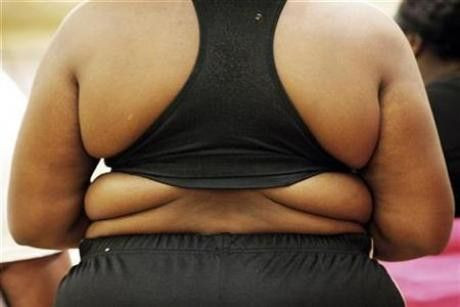Obesity Epidemic: Mississippi Fattest State, But Whole Nation Growing

America the overweight?
A new report by the Trust for America's Health and the Robert Wood Johnson Foundation details the scope of America's ongoing obesity epidemic, finding that adult obesity rose in 16 states without declining anywhere. The South remained our roundest region, containing nine of the 10 heaviest states. Mississippi registered as the fattest state, while Colorado was the only state with an obesity rate under 20 percent.
The report, F as in Fat: How Obesity Threatens America's Future 2011 details a worsening national issue. Scales have been under increased stress since 1995, when no state had an obesity rate above 15 percent and only four had rates higher than six percent.
Today, the state with the lowest obesity rate would have had the highest rate in 1995, said Jeff Levi, Ph.D., executive director of theTrust for America's Health. There was a clear tipping point in our national weight gain over the last twenty years, and we can't afford to ignore the impact obesity has on our health and corresponding health care spending.
Other social factors appeared to intersect with obesity rates. Blacks and Latinos were heavier on average than whites, people who failed to graduate high school were more likely to be obese than people with college degrees, and obesity becomes more common on the lower end of the income scale.
Obesity can lead to a host of health issues, from diabetes to heart problems. First lady Michelle Obama has made slimming down Americans her signature policy issue, and Robert Wood Johnson Foundation president and CEO Risa Lavizzo-Mourey urged individuals and policymakers alike to redouble our efforts to reverse this debilitating and costly epidemic.
An obesity expert took it one step further, arguing in an opinion piece in the Journal of the American Medical Association that allowing childhood obesity amounts to negligence, and should result in children being taken away.
State intervention may serve the best interests of many children with life-threatening obesity, comprising the only realistic way to control harmful behaviors, Dr. David Ludwig an obesity expert at Children's Hospital Boston, wrote. In severe instances of childhood obesity, removal from the home may be justifiable, from a legal standpoint because of imminent health risks and the parents' chronic failure to address medical problems,
© Copyright IBTimes 2024. All rights reserved.




















